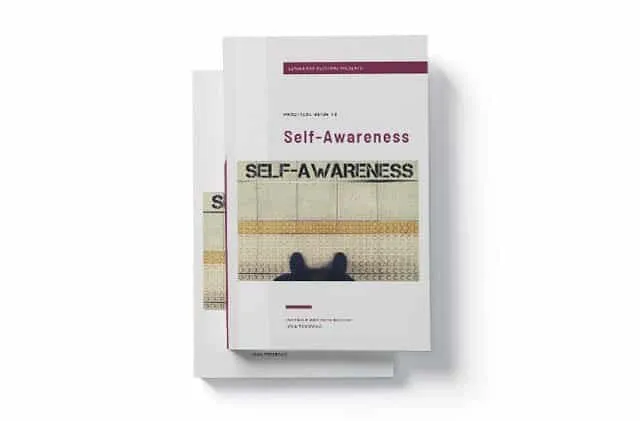Negotiation is a vital component of leadership. You can use it to resolve differences in opinion, challenges in the workplace, or to get from disagreement to consensus. In this article, we will talk about why negotiation is important in leadership.
The basic principles of negotiation work equally well in internal and external communication, within the company, and clients and vendors.
We can use negotiation in any subject of discussion, except religion and ethics. It is important that we do the negotiation willingly and freely. As you develop your leadership negotiation skills, you will be better able to facilitate problem solving, build professional relationships, and get support from your team.
What are negotiation skills?
Negotiation skills are often defined as soft skills. Negotiation skills examples include abilities such as communication, persuasion, cooperation, planning, and strategy. If you want to become a stronger negotiator, you need to understand these skills first.
Your workplace environment can affect the type of negotiation skills you need. Another thing that influences them are you intended outcome and people involved. What are the best negotiation techniques? Let’s look into the types first before taking a deeper dive to understand leadership and negotiation.
What are negotiation types?
Negotiation process can be broken down into many variations and further analyzed. There are several types of negotiation and the most notable ones are:
- One-time negotiation, which is a single or unique occurrence. This type delivers maximum success in the least amount of time. It also brings a likely outcome in which one party succeeds and the other one loses.
- Continuous negotiations, which are based on an ongoing business relation with partners, suppliers, and clients. We can describe this type of negotiation as the one that is influenced by the quality of the relation in the past encounters. Furthermore, the expectations for the future relations can lead to success, even if at times, there are no deals closed.
- Direct negotiations, which are distinguished by an existing direct contact between the concerned parties. This contact is on a more personal level, which can be an advantage and disadvantage. At times, it can be affected by the behavior of either party involved.
- Indirect negotiation, which is facilitated by a representative or a 3rd party negotiator. The challenge with this type of negotiation is the interest of the 3rd party, which may not be aligned with other parties involved.
7 rules of negotiation and how to get better at it
There are many negotiation skills and techniques you can use to become a more effective leader. Some people might even say that leaders need to discover the art of negotiation. I want to share 7 rules that will make you an effective leader and negotiator. They will help you understand the importance of negotiation in leadership.
Starting Point
The way we view things determines how they will be perceived in reality. As an effective negotiator, it’s vital to keep your viewpoints open and avoid involving ego and bias. It boils down to keeping the emotions in check throughout the negotiations. They play an influential role during each dialogue and interaction. Maintaining the emotions on a positive side can enhance the business relations. That translates into easier negotiations, problem-solving, and decision-making.
Emphasis on Timing
Negotiations can and should be time bound, and you need to emphasize the importance of timing. Knowing what to ask for is crucial, and so is knowing when to ask for it. Effective negotiators know when to push forward and when to hold back. When everything aligns the way you planned and estimated, it’s time to push and get what you came for. I need to caution you here. If you push too hard, you might negatively affect the longevity of the business relations. Don’t rush the course. Time is of the essence.
Do you believe timing is vital in negotiation?

Active Listening
Hearing and listening are two different things. If you fail to actively listen, all your strategies, tactics, and development will be ineffective. Sometimes, you will encounter problems that need to be resolved. Often, the other party just want their idea heard and understood.
Negotiation is like a learning process. Occasionally, it includes unexpected outcomes and surprises. As an active listener, pay attention PATIENTLY and observe for insights that will positively influence the outcome of the negotiation process.
Honor Commitment
The outcome of negotiation is affected by the commitments both parties made. If either of the parties involved cannot follow through on their commitments, they are risking a loss of integrity. Once you lose the trust, it is almost impossible to get it back. This will result in negative outcomes of future negotiations and even a refusal to do business. As an effective negotiator, only make commitments that you can honor and follow through.
Alternatives
It is always great to set high expectations. It is also good to be realistic about them. As a leader you should start preparing for alternative solutions of the negotiations. What happens if the original plan cannot land an agreement? Do you have backup options? If you don’t, start working on them when preparing for your future negotiations. This will allow you to be more collaborative and flexible depending on the situation.
Art of Persuasion
Active listening, commitment, and trust play an important role in any negotiation. As you build a healthy relation, your opportunity to apply the skill of persuasion rises exponentially. To level up your persuasion skills, use story-telling. Group important information into a descriptive language that will help you paint a mental picture in the mind of the other party. This will allow you to persuade by showing instead of telling.

Closing Point
At the end of any negotiation, even if you haven’t reached an agreement, do a quick summary or recap everything that was covered during the process. This will allow to confirm if everyone understood and agrees. Don’t leave any questions unanswered or any loose ends. In case you achieved the agreement, after closing, apply the 3-follow rule. Follow up, follow through, and follow back.
Role of Leadership in Negotiation
Leadership and negotiation go hand in hand. The process itself can be used in a variety of ways. Choosing an excellent strategy can be beneficial, and your success depends on how you prepare for negotiations. As an effective negotiator, the positive outcome depends on your ability to think through all the essentials. You need to identify and consider all options. You should also be realistic and avoid bias.
Always consider the other party in negotiation as your partner rather than an opponent. The ultimate goal is a win-win outcome by reaching a common ground between parties involved. Have in mind that negotiation is a must, as it’s one of the effective leadership skills. Realize the importance of negotiation and you will develop yourself as the next level leader in no time.
Do you have your own negotiation process? What are the skills of a good negotiator for you? Let me know in the comments below.







